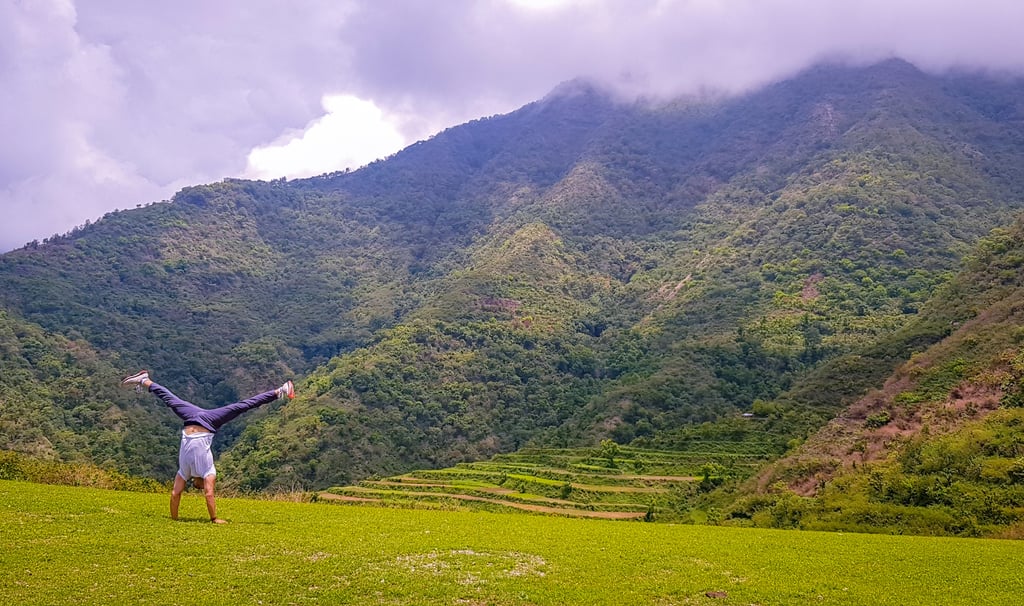The 5 Koshas: Your Blueprint to Holistic Wellbeing from Ancient India
This article helps you create your own blueprint of holistic wellbeing through the ancient Indian teachings about Koshas, layers of your being.


Have you ever felt like there's more to you than meets the eye? A deeper part of yourself waiting to be discovered? Ancient wisdom offers a profound blueprint for understanding this hidden potential: the five koshas.
Imagine yourself as an onion. The outer layer is easy to see - your physical body. But beneath that, there are layers of energy, mind, intellect, and finally, pure bliss. These layers are not just concepts; they are the very fabric of your existence.
Annamaya Kosha: This is your physical body, the foundation. Nourish it well, but remember, it’s just the beginning.
Pranamaya Kosha: This is your energy body. It's like the life force that powers you.
Manomaya Kosha: Your mind is the next layer. It’s powerful, but it can also be tricky.
Vijnanamaya Kosha: This is your intellect, the part of you that thinks and understands.
Anandamaya Kosha: Deep within, beyond the mind, lies your true essence – pure bliss and infinite consciousness.
The secret lies in peeling back these layers. As you delve deeper, you'll discover a power and peace you never knew existed. This isn’t just philosophy; it’s a practical guide to unlocking your full potential.
Why is it important to refine your koshas in the modern world.
In today's fast-paced world, we are constantly bombarded with information and stimuli. This can lead to stress, anxiety, and a sense of disconnection from our true selves. By refining our koshas, we can develop greater resilience, clarity, and inner peace. This allows us to navigate the challenges of modern life with greater ease and grace.
Holistic health ways of working on the different koshas
Annamaya Kosha: Nourishing the Physical Body
Mindful Eating: Cultivate a conscious relationship with food, paying attention to your body's hunger cues and satiety signals.
Balanced Diet: Incorporate a variety of whole foods, including fruits, vegetables, whole grains, lean proteins, and healthy fats.
Regular Exercise: Engage in physical activities you enjoy, such as yoga, dancing, swimming, or hiking. Aim for a balance of cardiovascular exercise, strength training, and flexibility work.
Sufficient Sleep: Prioritize quality sleep by establishing a relaxing bedtime routine, creating a comfortable sleep environment, and managing stress.
Ayurvedic Practices: Explore Ayurvedic self-care rituals like oil massage (abhyanga), herbal remedies, and panchakarma for deep detoxification.
Pranamaya Kosha: Energizing the Life Force
Pranayama: Practice various breathing techniques to regulate your breath and increase energy levels. Explore options like Nadi Shodhana (alternate nostril breathing), Kapalabhati (skull shining breath), and Ujjayi (victorious breath).
Yoga: Incorporate yoga postures (asanas) and meditation to enhance energy flow and balance.
Qi Gong: Practice gentle movements and breath awareness to cultivate vital energy (qi).
Nature Connection: Spend time outdoors to connect with the earth's energy and revitalize your spirit.
Manomaya Kosha: Harmonizing the Mind
Meditation: Cultivate mindfulness and focus through regular meditation practices. Experiment with different techniques like guided meditation, mantra meditation, or vipassana.
Journaling: Express your thoughts and emotions through writing. Explore gratitude journaling, dream journaling, or free-form writing.
Mindfulness: Incorporate mindfulness into daily activities to increase awareness and reduce stress.
Cognitive-Behavioral Therapy (CBT): Learn techniques to identify and challenge negative thought patterns.
Creative Expression: Engage in activities like painting, music, or dance to express your emotions and tap into your creativity.
Vijnanamaya Kosha: Expanding Wisdom and Understanding
Lifelong Learning: Continuously seek knowledge and expand your intellectual horizons through reading, attending workshops, or taking online courses.
Philosophy and Spirituality: Explore philosophical and spiritual teachings to gain deeper insights into life and existence.
Critical Thinking: Develop the ability to analyze information, question assumptions, and make informed decisions.
Mentorship: Seek guidance from experienced individuals to learn from their wisdom and expertise.
Anandamaya Kosha: Cultivating Bliss and Connection
Meditation and Contemplation: Deepen your meditation practice to connect with your inner peace and joy.
Service and Compassion: Engage in acts of kindness and volunteer work to cultivate a sense of connection and purpose.
Nature Connection: Spend time in nature to experience a sense of awe and wonder.
Spiritual Practices: Explore practices like chanting, prayer, or devotional practices that resonate with you.
Self-Inquiry: Reflect on your values, beliefs, and purpose in life to deepen your understanding of yourself.
Remember: The key to holistic well-being is to create a personalized practice that suits your individual needs and preferences. Experiment with different approaches and find what works best for you.
How working on the higher koshas automatically refines the lower ones
When we work on refining our higher koshas, we are essentially purifying our consciousness. This has a ripple effect on the lower koshas, leading to greater balance and harmony in all aspects of our being. For example, when we cultivate wisdom (Vijnanamaya Kosha), we are better able to manage our thoughts and emotions (Manomaya Kosha), which in turn leads to improved physical health (Annamaya Kosha).
Ready to start your journey of self-discovery?